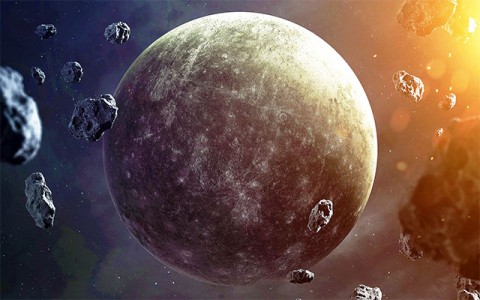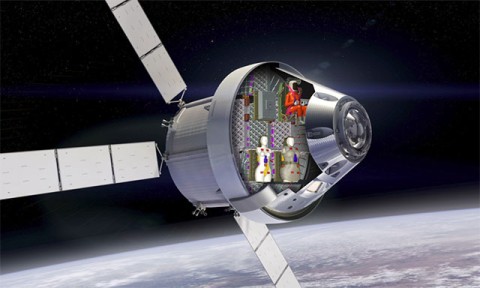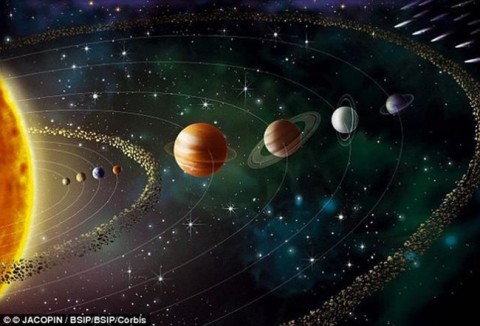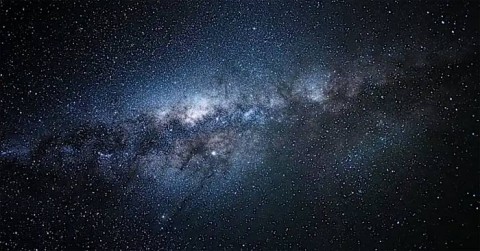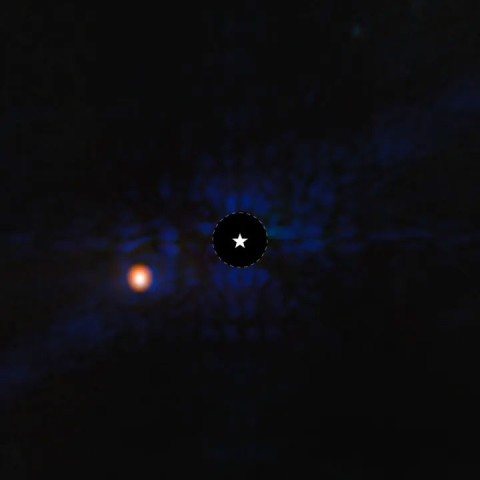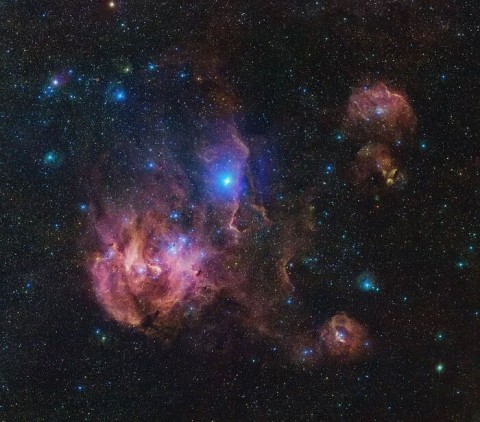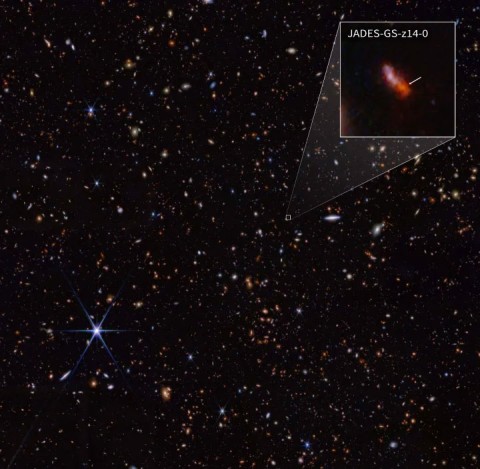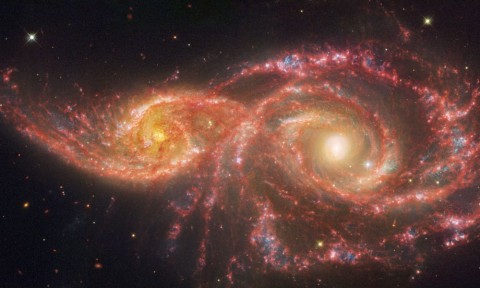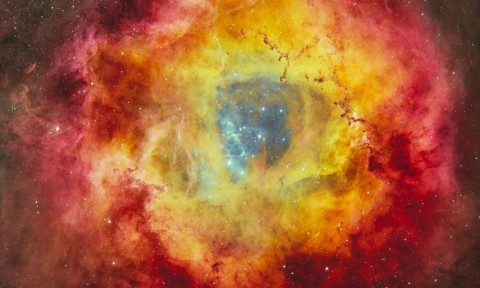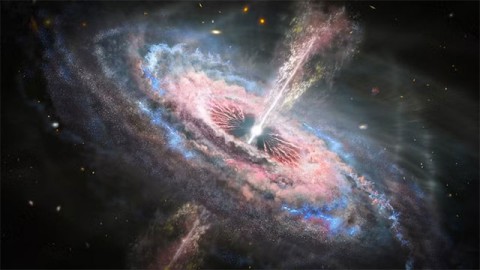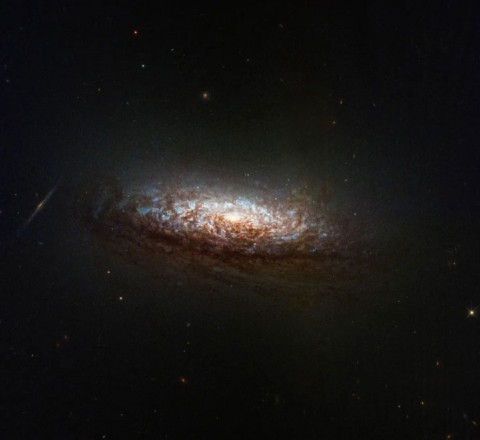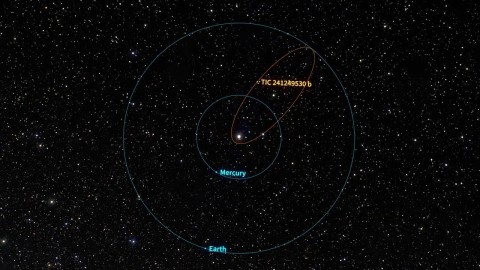Will the Universe end in a Big Freeze, a Big Rip – or something even stranger? Take a look into the distant future with astronomers from the Royal Observatory Greenwich.
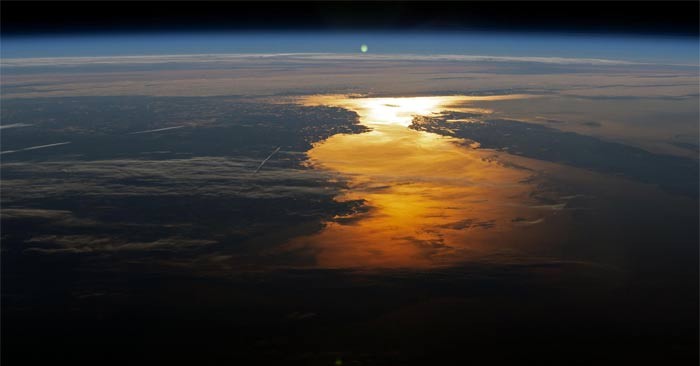
All good things must come to an end. In life, we think about things like the end of a holiday or saying goodbye to friends at school, but these events are tiny on the time scale of the Universe. Astronomers from the Royal Observatory Greenwich consider what will happen billions and trillions of years from now, and what the end of things might look like... Let's find out!
This article is adapted from Space Oddities: An Astronomy Miscellany, a new book from the Royal Greenwich Observatory. Let astronomers guide you through the awe-inspiring mysteries of the universe. This book is packed with surprising discoveries, fascinating theories, and unbelievable facts.
The End of the Earth
Our Sun is a giant ball of gas, and is our source of heat and light. It is the reason why Earth is habitable for humans, but it will also be the reason for the planet's unfortunate fate.
The Sun releases energy created by nuclear fusion reactions in its core, where hydrogen is converted into helium. Currently, the Sun is about halfway through its supply of hydrogen. Eventually, however, the hydrogen will run out, and when it does, the Sun's core will begin to collapse inward. Its outer layers will then expand, forming a red giant star.
It’s not known how much the Sun would expand, but current estimates suggest it would engulf Mercury, Venus, and possibly even Earth. “Could” is nice, right? Wrong! Even if it didn’t reach Earth, the intense heat from the then-giant Sun would be enough to vaporize our planet’s oceans, raise surface temperatures by hundreds of degrees, and end all life as we know it.
Time until the end of the Earth: about 5 billion years.
The End of the Solar System
This is just the beginning of the end of the Sun’s life. After the red giant phase, the outer layers of the star will continue to expand into space, to the point where they will form a planetary nebula (nothing to do with planets!). The outer layers will leave behind a white dwarf, the core of the old star.
Through this process, the Sun would lose about half its mass, causing the gas giant planets (Jupiter, Saturn, Uranus, and Neptune) to move outward into wider orbits. They would become less stable as they moved farther from the gravitational force holding them in place, making it easier for another star to capture them.
Although the universe is vast, over long periods of time, gravitational interactions with other passing star systems can cause disturbances and even potentially eject planets from their systems entirely. These ‘stray’ planets can travel for eons without being disturbed, but they can be captured by another star system, entering orbit around a new star. The number of variables involved makes this kind of change difficult to predict even at a preliminary level, but the encounter between the stars could eventually leave a remnant of the Sun’s white dwarf.
Time until the end of the Solar System: About 8 billion years.
The End of the Galaxy
We know that in a few billion years, the Milky Way will eventually merge with our nearest large spiral galaxy, Andromeda, but that may not be the only merger our Milky Way undergoes.
Due to gravity, most galaxies move in groups. The Milky Way is part of the Local Group, which consists of about 40 galaxies moving through the Universe. It is likely that in tens of billions of years, all of these galaxies will merge to form one large elliptical galaxy, leaving no evidence of their separate pasts.
Time until the end of the Milky Way: about 100 billion years.
The End of Cosmology
The Universe itself is expanding. We observe that galaxies are moving away from us, and the farther away they are, the faster they are moving. At extremely large distances, galaxies can move away faster than the speed of light.
If this continues, the Universe will expand so rapidly that light from distant galaxies will no longer be able to reach us and we will no longer be able to observe the Universe. Eventually, all that will be left will be black holes, neutron stars, and a few black dwarfs.
Matter is generally stable, but over very long periods of time it was believed that even the fundamental atomic particles – the most basic building blocks of matter – could break apart, leaving only black holes.
Black holes are massive, so they will last a long time. Although it is not certain, British theoretical physicist Stephen Hawking (1942–2018) predicted that even black holes will slowly emit radiation, losing mass until they eventually 'evaporate', signaling the beginning of the end.
Time until the end of the cosmological universe: about 150 billion to 10,0 ...
years.
The End of the Universe?
With the last black hole gone, we may be at the end of the Universe's timeline. We don't really know what the Universe looks like yet, so its end could manifest itself in many ways.
If the Universe continues to expand, the energy will spread out so much that eventually all regions within it will remain at the same temperature. This is called the Big Freeze, when interactions between particles will cease and the Universe will remain frozen forever.
But if you don't like the idea of a cold, dark, barren Universe, don't worry! There are still more unexpected possibilities for how the Universe will end.
As we know, the Universe is accelerating in its expansion. If it continues to expand at this ever-increasing rate, it may expand so quickly that gravity can no longer hold anything together. The Big Bang will occur and everything from galaxies to atoms will be torn apart. All that will remain are individual particles moving through a seemingly empty, timeless space.
However, there may still be hope, as some scientists say the Universe will not expand forever. The Big Bang theory suggests that, in the future, the amount of matter in the Universe will be so great that gravity will cause the expansion to slow down and stop. It will then reverse, causing the Universe to contract until it coalesces into a tiny point called a singularity before expanding again, triggering another Big Bang and leading to the birth of a new Universe. This process could happen over and over again, with our Universe and future universes trapped in a never-ending cycle of contraction and expansion.
Time until the end of the Universe: about 1,000,000,000,000,000,000,000,000,000,000,000,000,000,000,000,000,000,000,000,000,000,000,000,000,
000. ... 00,000, 000,
...
years... maybe.
